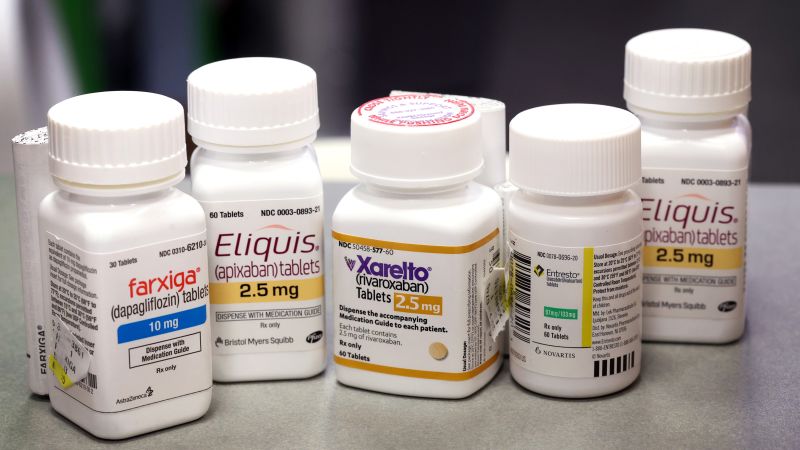A federal court judge in Ohio denied Friday an attempt by the US Chamber of Commerce to immediately stop the Biden administration’s implementation of Medicare’s new drug price negotiation program.
The ruling was the first time a federal court has weighed in on the multiple lawsuits filed against the controversial program.
The chamber filed a lawsuit in June arguing that allowing Medicare to negotiate drug prices is unconstitutional for several reasons. It then asked for a preliminary injunction to halt the program by October 1, when drug makers have to agree to participate in the program.
“As to Plaintiffs’ motion for a preliminary injunction, they have demonstrated neither a strong likelihood of success nor irreparable harm,” wrote Judge Michael Newman of the US District Court for the Southern District of Ohio, in Dayton.



An argument I often hear to justify sky-high drug prices is that developing new drugs is incredibly expensive. Additionally, hundreds of millions of dollars are spent on research that simply doesn’t pan out.
What’s a fair way to fund research while still keeping drug costs reasonable?
Much development is being done at public research universities leveraging government grants. Most of what these companies pay for is packaging, marketing, and distribution
Thank you. I don’t know much about the drug development process, besides what the drug companies want me to hear.
deleted by creator
This is patently false. Do some research on the clinical development process. Running trials is neither cheap nor easy. You can’t just go from lab to store shelves. You have to run phase 1, 2, and 3 studies to prove it is safe and works.
I’m not arguing against being able to negotiate drug prices, by the way. The government should do that.
Source that research isn’t funded publicly?
I didn’t say that there isn’t publicly funded research. There is both public and private. The claim that private companies do nothing but package and manufacture is not in line with reality, however.
I’ll speak on one from personal experience. I have been on a med most of the last 20 or so years for a chronic illness. I believe the drug hit the market in 1997 and as of 2018 was still making the company 1.7 billion dollars a year. That 1.7 was actually 44% lower than in 2017. Looking briefly now it is finally taking in less than 1 billion a year, but still 800 million. It isn’t dropping in revenue because they lowered the price. It is because other meds have been introduced so they have a lot more competition.
There was even an event where press asked the CEO about having made back their development costs and then some, which he agreed they had, would they then lower the price? He said there was no reason to lower the price as it was a huge revenue source for them.
Over 20 years later the costs for it continued to climb rather than lower. Costs for it estimated at 10k per patient in 1997 and around 70k now per year.
US based companies develop a lot of useful treatments and drugs. Nationalized health systems in Canada, UK and elsewhere end up paying less than US citizens for the same stuff. US innovation and development has essentially subsidized their ability to pay less than we do for things we created. We’d be better served to pass a law that says Britain’s NHS and Canada’s system can’t be sold any US drug for a single penny less than the highest MSRP paid by random US guy with zero insurance. This forces either the drug companies to lower prices for everyone in the market, or at least makes foreign systems subsidize more of the drug development cost.